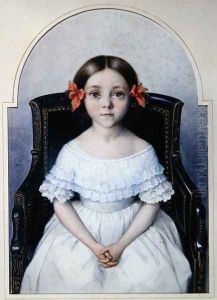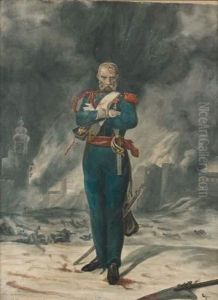Louis Gaston de Segur Paintings
Louis Gaston de Segur was a prominent French Catholic writer, apologist, and priest, born in Paris on April 15, 1820. Descended from a noble family with deep roots in France’s military and diplomatic corps, Segur was initially destined for a career in diplomacy. However, a profound spiritual awakening altered his life's course, leading him to the priesthood. He was ordained in 1847, dedicating his life to the Catholic Church and its teachings.
Segur's work as a writer and apologist was characterized by his deep devotion to the Church and its doctrines. He wrote extensively, with a clear and accessible style, aiming to defend the faith and educate both the faithful and skeptics about Catholicism. His writings covered a wide range of topics, including the sacraments, the Virgin Mary, the Pope, and the challenges posed by secularism and atheism. Among his most influential works were 'Short and Familiar Answers to the Most Common Objections Against Religion' and 'Hell: Considered in the Light of Reason and Revelation,' both of which enjoyed wide circulation and were translated into several languages.
Segur's apologetic efforts were not limited to his writings. He was also a passionate and engaging speaker who traveled extensively, giving lectures and participating in debates that defended the Catholic faith. His eloquence and ability to connect with a diverse audience made him a celebrated figure in Catholic circles, as well as a respected adversary among skeptics and critics of the Church.
Despite his noble background and the prestige it afforded him, Segur was noted for his humility and dedication to the poor and marginalized. He spent a significant portion of his ministry providing spiritual and material support to the less fortunate, embodying the charitable principles of the Gospel.
Louis Gaston de Segur passed away on June 9, 1881. His legacy endures through his extensive body of written work, which continues to be read and appreciated by those interested in Catholic apologetics and the history of the Church. He remains a significant figure in the history of French Catholicism, remembered for his unwavering faith, his eloquent defense of Catholic doctrine, and his deep commitment to the service of humanity.

